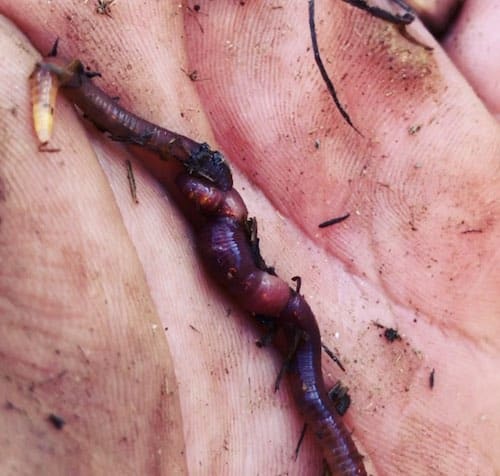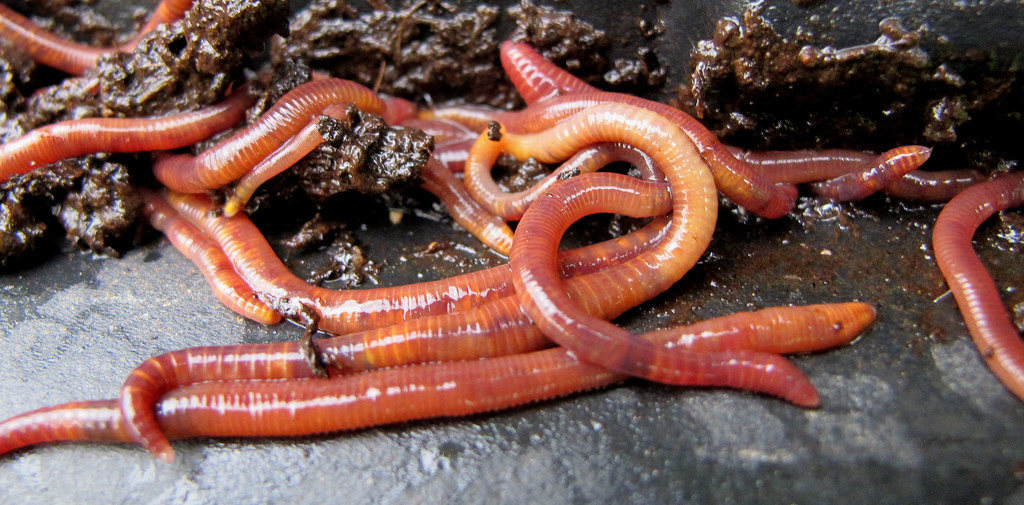Maximize Lawn Growth with Effective Products from Red Wiggler Express
Maximize Lawn Growth with Effective Products from Red Wiggler Express
Blog Article
Red Wigglers 101: Everything You Required to Know for Thriving Gardens
Red wigglers, or Eisenia fetida, play a vital function in lasting gardening practices, serving as reliable decomposers that convert natural waste into beneficial vermicompost. Recognizing their habitat, nutritional preferences, and the myriad advantages they provide can change your gardening approach.
Recognizing Red Wigglers

Red wigglers prosper in settings rich in organic material and dampness. Red Wiggler Express. They possess an one-of-a-kind digestive system that permits them to refine food scraps quickly, eliminating castings that are packed with essential nutrients such as nitrogen, phosphorus, and potassium. These castings boost soil framework, enhance water retention, and foster valuable microbial task, every one of which add to durable plant health and wellness
Furthermore, red wigglers can make it through in diverse problems, making them adaptable to different horticulture practices, consisting of indoor and outside composting systems. Their capability to take in huge amounts of organic waste everyday settings them as useful allies for both home garden enthusiasts and business farmers. By integrating red wigglers into horticulture initiatives, one can dramatically boost dirt fertility and support lasting gardening methods.
Ideal Habitat for Red Wigglers
Producing an ideal setting for red wigglers is essential for maximizing their composting abilities and total wellness. Red wigglers flourish in damp, dark, and well-aerated environments, which closely resemble their native environments in fallen leave clutter and decomposing organic matter. An appropriate environment needs to offer a temperature level variety between 55 ° F and 77 ° F(13 ° C to 25 ° C), as extreme temperatures can emphasize or damage the worms.
The bedding product, such as shredded paper, cardboard, or coconut coir, ought to be kept wet but not excessively damp, as excessive moisture can lead to anaerobic problems damaging to worm health and wellness. Additionally, a pH degree in between 6.0 and 7.5 is optimal, making sure a balanced setting.
Correct aeration is equally important; it enables oxygen circulation and avoids the accumulation of harmful gases. A container or bin designed for vermicomposting need to have drainage holes to get rid of excess wetness and promote airflow. Routine tracking of these problems is vital for keeping a prospering red wiggler population, ultimately improving their effectiveness in breaking down organic waste and enhancing yard soil.
Dietary Requirements and Preferences

Red wigglers show specific choices; they are especially keen on softer, breaking down products over more challenging or even more fibrous materials. It is vital to avoid feeding them citrus peels, onion, and garlic in big quantities, as these can be damaging. Furthermore, meat, milk, and oily foods should be excluded, as they can attract bugs and produce unpleasant smells.
(Red Wiggler Express)Green materials, such as veggie scraps, supply nitrogen, while brownish products, like cardboard and dried out fallen leaves, supply carbon. By providing to their my link dietary needs, gardeners can promote a growing population of red wigglers in their garden compost systems.
Advantages of Making Use Of Red Wigglers
The remarkable advantages of using red wigglers in gardening extend far past their role in composting. These functional microorganisms contribute considerably to soil health, boosting nutrient availability and advertising microbial activity. By aerating the dirt as they burrow, red wigglers boost drain and origin infiltration, producing an optimal environment for plant growth.
Furthermore, red wigglers are efficient recyclers of organic waste, converting it into nutrient-rich spreadings that function as an exceptional natural fertilizer. These castings include advantageous bacteria and important nutrients, such as nitrogen, phosphorus, and potassium, which are important for plant development. The sluggish release of nutrients from worm spreadings makes certain a consistent supply, reducing the threat of nutrient leaching and promoting lasting gardening techniques.
Utilizing red wigglers cultivates a more sustainable gardening technique by lowering reliance on chemical plant foods and promoting a closed-loop system, where waste is transformed into important sources. On the whole, incorporating red wigglers into gardening practices supplies a wide range of eco-friendly and farming benefits.
(Charlotte NC Worms For Sale)
Composting With Red Wigglers

To start an effective vermicomposting system, pick an ideal container with appropriate air flow and drainage. The perfect atmosphere for red wigglers consists of a damp, dark setting with temperatures between 55 ° F and 77 ° F. Begin by layering shredded paper, cardboard, and food scraps, making sure a well balanced mix of carbon and nitrogen-rich products.
Red wigglers thrive on veggie peels, fruit scraps, coffee premises, and eggshells, while staying clear of meat, milk, and oily foods that can bring in parasites. Routinely check dampness degrees; the bed linens must perspire yet not soggy. Harvest worm castings every couple of months by dividing the worms from the compost, which can then be utilized straight in yards or stored for later usage.
Carrying out vermicomposting not just reduces land fill waste but additionally enriches yard soil, promoting healthy plant growth and sustainable gardening techniques. Welcome this environment-friendly technique to enhance your horticulture undertakings.
Final Thought
In summary, red wigglers are essential organisms for enhancing garden performance with efficient composting. Their particular habitat needs, dietary preferences, and significant benefits add to lasting horticulture practices. By utilizing red wigglers, garden enthusiasts can significantly boost dirt quality and nutrient schedule, promoting healthier plant development. Accepting the method of vermicomposting not only sustains waste reduction yet also promotes an environmental equilibrium within yard ecosystems, inevitably causing prospering and resistant gardens.
Report this page